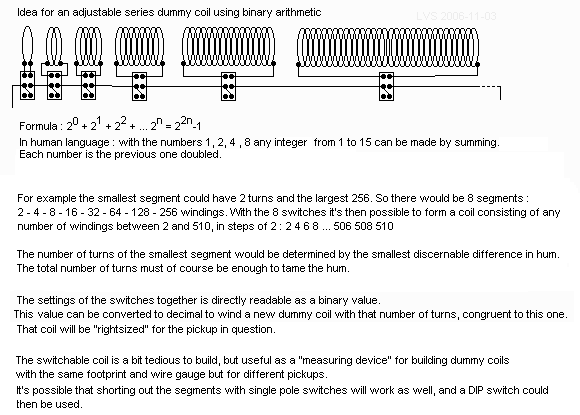Yes, it is possible to just guesstimate or eyeball or go for a shot in the dark. Obviously a professional touring musician who desperately needs zero hum may require the precision of trimpots to dial in optimal cancellation, but every db less of hum is a db less of hum. I'd like 0db of hum myself, but I'll happily settle for 12db less. So, yeah, you can just whip up a dummy coil that's somewhere in the ballpark and expect to hear some sort of benefit, even if it isn't as much as a Suhr system would get you.
I guess the other way to look at it is that every db less of hum makes it easier for more aggressive noise-reduction methods like noise gates or downward expanders to be set in less aggressive ways. Traditionally, we've hated noise gates as a solution because the threshold would often have to be set so high that you'dlose the initial attack of the note and lose some of the decay. If you can afford, by means of modest hum-reduction, to set the gating threshold much lower, then the noisegate's behaviour may interfere with the naturalness of the sound and instrument's dynamics much less.
I guess the other way to look at it is that every db less of hum makes it easier for more aggressive noise-reduction methods like noise gates or downward expanders to be set in less aggressive ways. Traditionally, we've hated noise gates as a solution because the threshold would often have to be set so high that you'dlose the initial attack of the note and lose some of the decay. If you can afford, by means of modest hum-reduction, to set the gating threshold much lower, then the noisegate's behaviour may interfere with the naturalness of the sound and instrument's dynamics much less.
 .
.
Comment